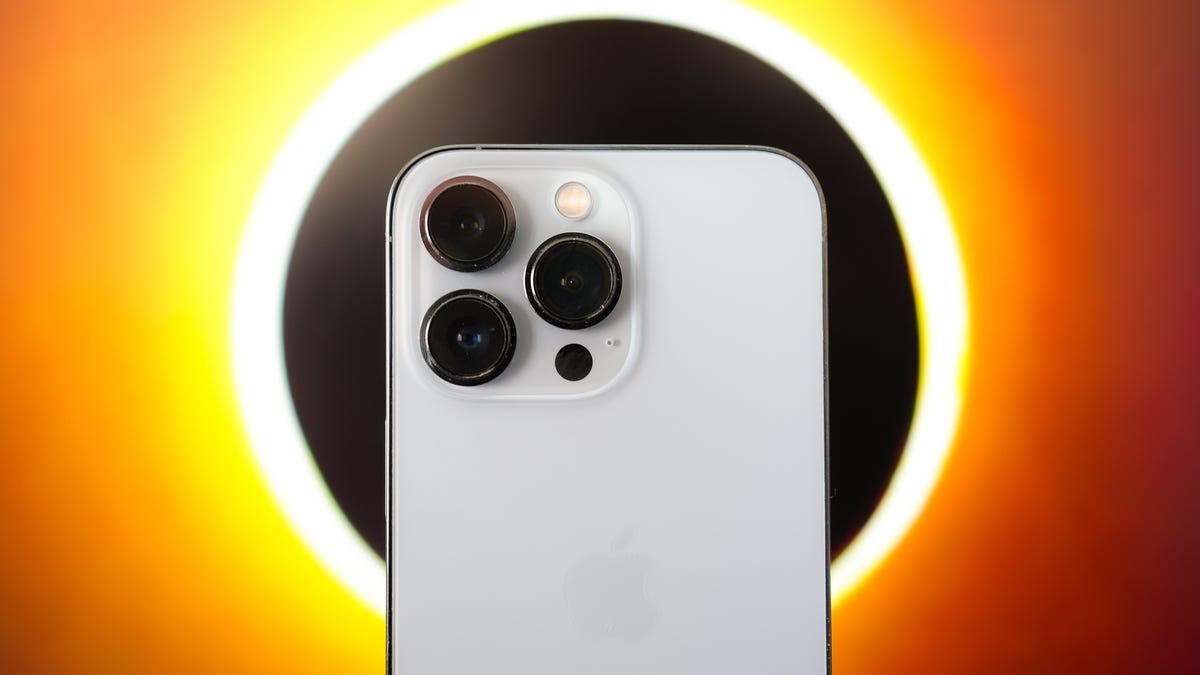Kerry Wan/ZDNET
On Monday, millions of people in North America will experience a total solar eclipse, when the moon passes by the sun, bringing a brief moment of darkness during the daytime. When it happens, the rule of thumb is never to stare directly at the sun, whether partly covered or fully eclipsed, as prolonged exposure to the brightness can result in severe eye injury, according to NASA.
Also: There’s still time to grab the best solar eclipse glasses of 2024
What about capturing pictures and videos with your smartphone? Whether you’re using an iPhone or Android, the general consensus from phone manufacturers, accessory makers, and product experts suggests that, like your eyes, the phone’s fragile camera sensors can’t be exposed to the light for too long. Otherwise, there’s a possibility of damaging the sensor.
“For those who are very concerned, it is possible to buy a solar filter for the smartphone camera at a fairly reasonable price,” advises Runar Bjorhovde, analyst at Canalys. “Let’s also not forget that the biggest risk from an eclipse is to the eyes of a person watching. Those tend to be much harder to repair and replace than a smartphone camera.”
The folks from Halide Camera, who developed an iOS app that gives you manual controls over your iPhone’s camera, also suggest capturing photos only during eclipse, and in short bursts. At that time, the sun is either covered by clouds and/or the moon, lessening the intensity of its brightness and posing a smaller threat to your phone’s sensor. Your phone camera can also better adjust its exposure levels, speed of light, and f/stop to match the color of the sun while it’s obstructed, suggests Bjorhovde.
Also: April 2024 solar eclipse FAQ: How to watch, what you need, and everything else to know
During other phases of the eclipse, when the sun is more exposed, your phone’s output will likely come out blurry, too bright, and unusable. That is unless the handset is equipped with specialized gear, such as a telephoto lens attachment for far-distance capturing, a solar filter, and a tripod or selfie stick for stability. With the proper equipment for your phone, getting a visually accurate shot of the eclipse is very much possible.
